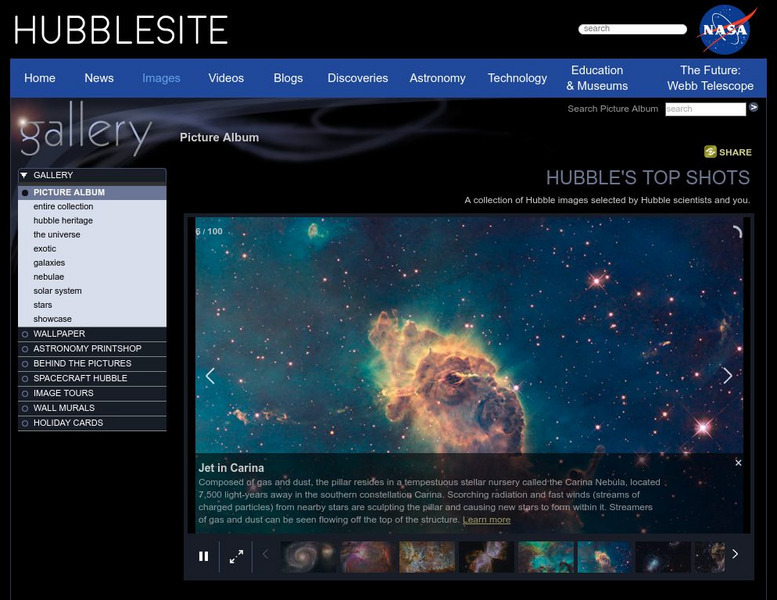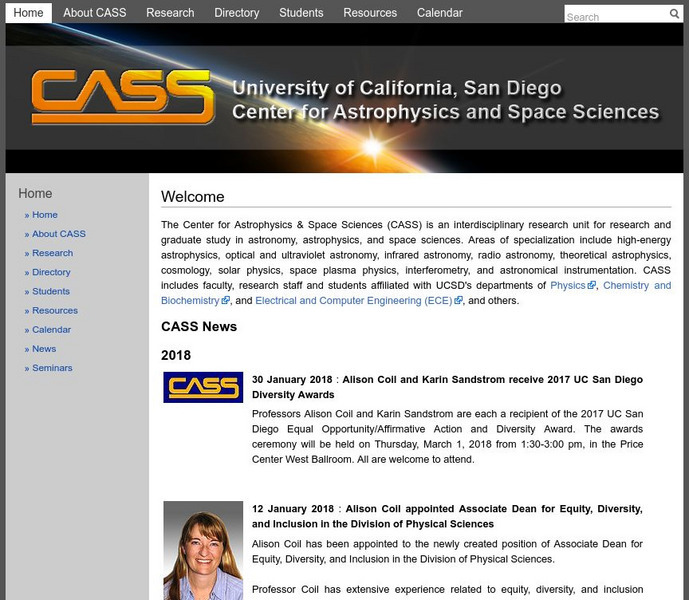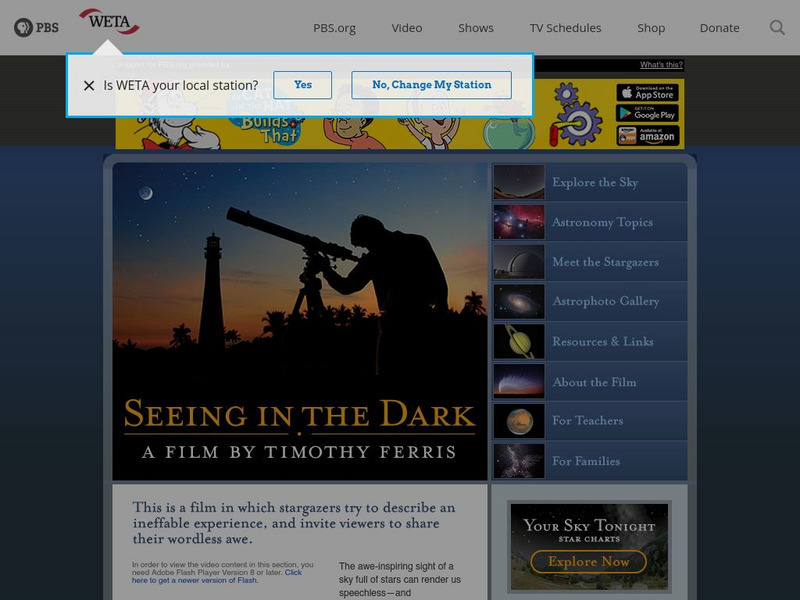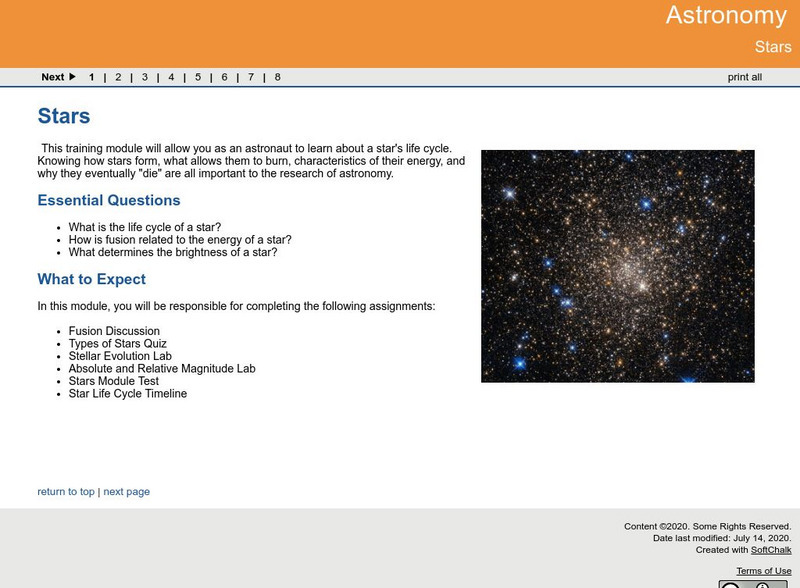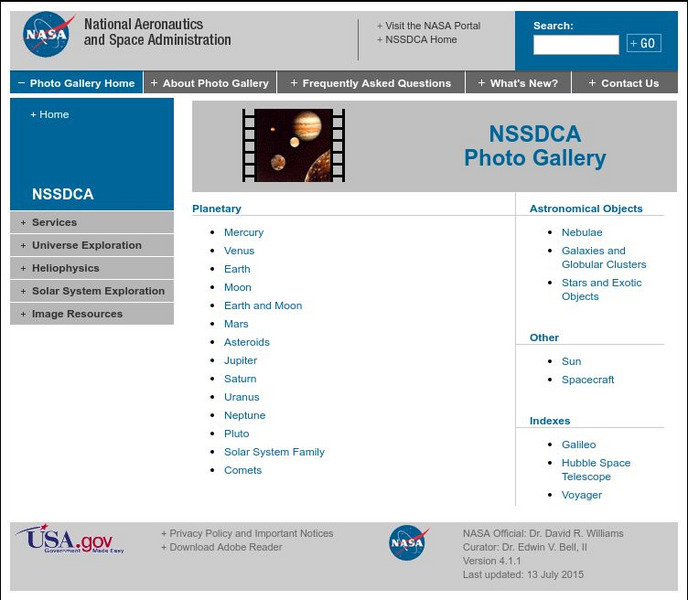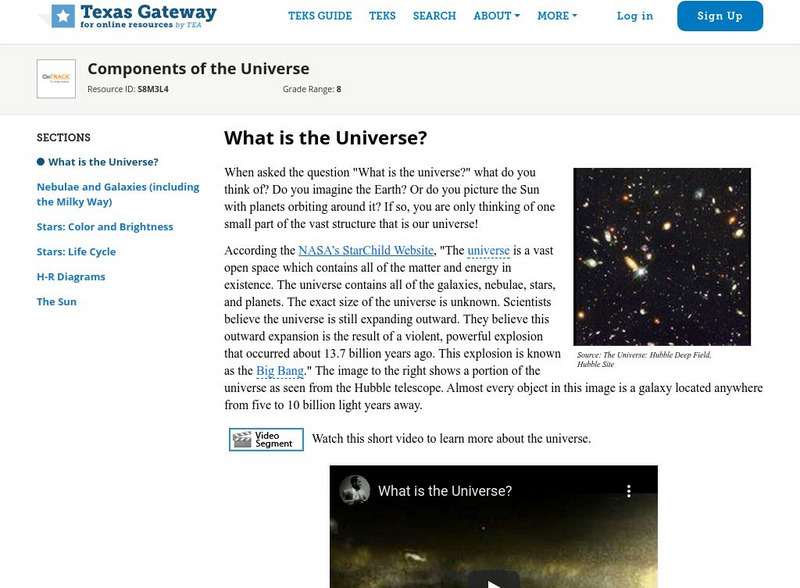Hi, what do you want to do?
Curated OER
Palm use in Astronomy
High schoolers identify and recall common constellations by using a palm pilot with astronomy software. Students will use their Palm to assist them in correctly identifying constellations using a telescope.
Curated OER
Observing Mars in the Night Sky
Students compare and contrast the orbits of Earth and Mars, locate the planet Mars, and diagram its retrograde motion.
Curated OER
SIMPLY STARS
Young scholars produce quilting stars that challenge students with unusual piecing situations, and the sampler format allows quilters to create freely with unusual fabric combinations.
Curated OER
Take a Spin Through the Solar System
Second graders participate in a variety of activities to explore the Solar System in this unit.
Curated OER
Astronomy: A Star Party
Students explain the functions of a telescope. They name the parts of the telescope. After previously learning the planets and constellations, students identify and view them during a star party.
Curated OER
The Mystery Constellation
Students decipher two teacher chosen mystery constellations a month. They listen to stories, explain what they know about constellations and name the mystery constellation.
Curated OER
Bouncing Sunlight
Third graders use flashlights and balls to demonstrate how the light bounces off of the sun and reflects onto the moon. They record their observations in a journal.
California Institute of Technology
Cool Cosmos: Ask an Astronomer
What is a star? How many stars can you see at night? How far away are the stars? Find the answer to these questions and more as Cool Cosmos and NASA astronomers answer the most frequently asked questions about stars!
University of Wisconsin
University of Wisconsin: The Constellations and Their Stars
An excellent site dedicated to the constellations and information about the objects which make them up. Contains a great deal of information about various stars, galaxies and other objects, as well as details on how best to observe them.
Science Buddies
Science Buddies: Changing Constellations
Do you like to look up into the night sky? There are so many stars, it can be mind boggling. Some ancient people marked time by the changes in star patterns. We still use changes in constellation patterns to mark astronomical time. This...
Science Buddies
Science Buddies: Which Stars Can You Use for Navigation
A great science project from Science Buddies that examines how ancient peoples navigated without the benefit of a GPS. Find out which stars are important in navigation in the northern and southern hemispheres. The Science Buddies project...
Space Telescope Science Institute
Hubble Site: Images From Space
This site provides vivid images taken in space by the Hubble Telescope. You can view the entire collection or choose an area you enjoy the most. Explore galaxies, the solar system, nebulae and more!
University of California
University of California:center for Astrophysics & Space
Supernovae, neutron stars, and pulsars are topics on this page. Extensive section on pulsars that presents information on their discovery, characteristics, evolution, and location.
PBS
Pbs: Seeing in the Dark
While you won't find the full movie here, there are extensive learning opportunities available to discover the many stars in the sky. Students and teachers will find all sorts of activities, facts, and lessons.
Other
Constellations Web Page: The Constellations
Information about 88 constellations, including the myths associated with them and details of the major astronomical objects that are part of them.
Other
Jodrell Bank Centre for Astrophysics: A Tutorial on Radio Pulsars
A extensive site that describes the history of the discovery of pulsars along with definitions, characteristics, locations, and distances of pulsars, plus much more.
Other
Celestia
This site provides a free space simulation that lets you explore the universe in three dimensions. There is a forum for teachers and lesson plans that help enhance student use of the simulation. A program must be downloaded in order to...
Other
Physics.org: A Grain of Sand Covers 10,000 Galaxies
A fascinating look at how big our solar system really is. Shows how we can only see a tiny bit of our vast universe.
Other
Center for Educational Resources: Sky Paths
Lesson activities where students observe and describe the movements of objects in the sky in both daytime and nighttime. They learn how early cultures regarded the skies, and the stories they told about them. Students will be given the...
Science Buddies
Science Buddies: Where Did All the Stars Go?
If you live in a big city or urban area it is hard to see many stars at night. In most urban areas only the most brilliant stars, planets and the moon can be seen. This is because of something called light pollution which is the...
Science Buddies
Science Buddies: The Moon and the Stars
When you are in the city, only a few of the brightest stars are visible. But when you are in the country, you can see many more stars than you can count. Sometimes you can even see the bright belt of our galaxy, the Milky Way. In this...
Georgia Department of Education
Ga Virtual Learning: Stars
In this interactive module students will explore the life cycle of stars and how they produce energy.
NASA
Nasa Space Science Data Archive: Photo Gallery
A website featuring a collection of images from NASA. Collection includes images of planets, comets, nebulae, galaxies, stars, sun, and spacecrafts.
Texas Education Agency
Texas Gateway: What Is the Universe?
The following tutorial is an explanation of what the universe is composed of.
















